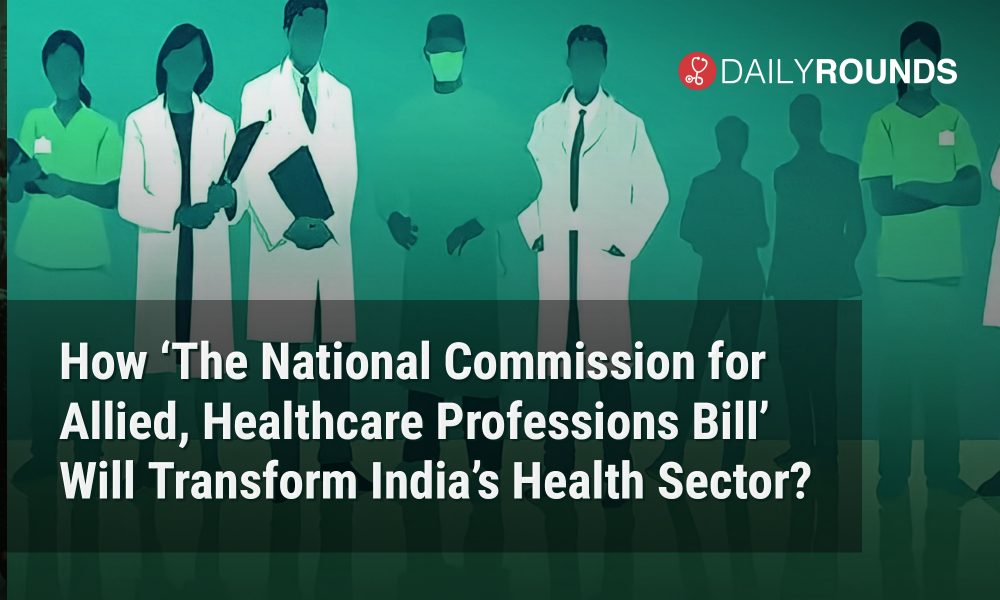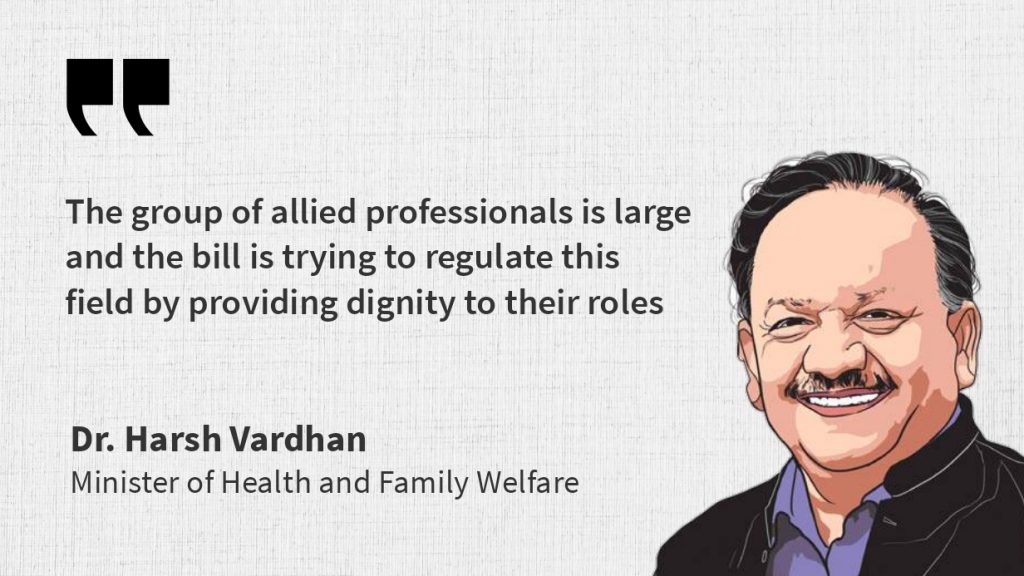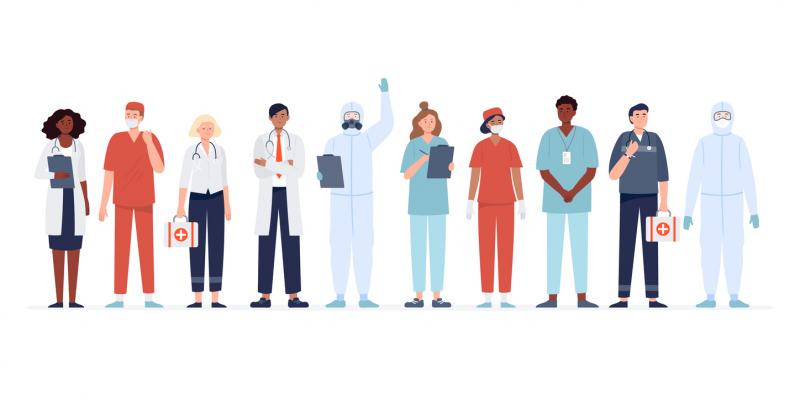
How ‘The National Commission for Allied, Healthcare Professions Bill’ Will Transform India’s Health Sector?
The National Commission for Allied and Healthcare Professions Bill, 2020 (NCAH Act) was passed by Parliament recently after a long and anxious wait, particularly by health professionals. The landmark law is expected to recognise the skills of over 56 types of frontline health workers, increase their employment opportunities and enhance their true worth within India and globally. Let’s look closely into the key points of the Bill.
The Act provides for regulation and maintenance of standards of education and services by allied and healthcare professionals, assessment of institutions, maintenance of a central and state register, and creation of a system to improve access, R&D, and adoption of latest scientific advancements. People who haven’t enrolled themselves under the national register will not be allowed to practice and may face a fine of up to Rs 5,00,000 and imprisonment of up to one year.
Who is covered under the bill?
The Act defines an allied health professional as an associate, technician, or technologist trained to support the diagnosis and treatment of any illness, disease, injury, or impairment and to support the implementation of any healthcare treatment and referral plan recommended by a medical, nursing or any other healthcare professional. A healthcare professional is a scientist or therapist who is involved in the curative or therapeutic aspects of medical care.
The allied services broadly include professional categories such as physiotherapy, occupational therapy, ophthalmic sciences, nutrition sciences, medical laboratory, and life sciences, medical radiology, imaging and therapeutic technology, medical technologists and physician associates, trauma, burn care, and surgical/anesthesia-related technology, community care, and behavioral health sciences and health information management and health informatics.
How is it relevant?
While doctors, nurses, dentists, and pharmacists in India are regulated through their respective regulatory bodies, allied and healthcare professionals are still unstructured and unregulated. The potential of these professionals can be harnessed to reduce the cost of care and to make quality healthcare services accessible to all.

Union Health Minister Harsh Vardhan said that the legislation, which got bipartisan support across party lines in the Lok Sabha, is aimed at fulfilling long-pending demands of the sector and enhancing employment opportunities for professionals. “The paramedics and allied healthcare workers are a critical part of the medical profession and their contribution is more or less similar to doctors. The group of allied professionals is large and the bill is trying to regulate this field by providing dignity to their roles,” he said.
What are the other major provisions?
The Bill lays down the groundwork for regulating professional conduct, code of ethics, and etiquette to be observed by allied and healthcare professionals. It also provides for a uniform entry examination with common counselling for admission into allied and healthcare institutions at diploma, undergraduate, postgraduate and doctoral levels and a uniform exit or licensing examination.
The Central Commission will also prescribe minimum standards of education, courses, curricula, physical and infrastructural facilities which an institution (including universities) offering such courses would have to maintain by law. There will also be a Central Council for these professions and corresponding State Allied and Healthcare Councils. The Bill would also restrict such professionals from misrepresentation and even misuse of titles and ensure penalties for such offences.
What are the penal provisions under the bill?
The Bill defines various offences such as misuse of title, failure to register, or failure to surrender the certificate of registration and lays down penalties for each of them. “Whoever contravenes any of the provisions of this Act or any rules or regulations made thereunder shall be punished with imprisonment which shall not be less than one year but which may extend to three years or with fine which shall not be less than one lakh rupees but which may extend to five lakh rupees or with both,” the Bill lays down.

The nation, or rather the world, has witnessed the invaluable contribution of these professionals during Covid-19. These frontline health workers risked their lives every day fighting the pandemic. The need for the development and maintenance of standards of services and education of these professionals through a national regulatory body has been long overdue.
The Act would regulate and leverage qualified allied and healthcare workforce and ensure high-quality multidisciplinary care in line with the vision of Universal Health coverage moving towards a more care accessible and team-based model. The Act would reform and regulate this entire sector in order to give these professionals their due, increase their employment opportunities, and more importantly, enhance their dignity by recognising their true worth within the country and globally.